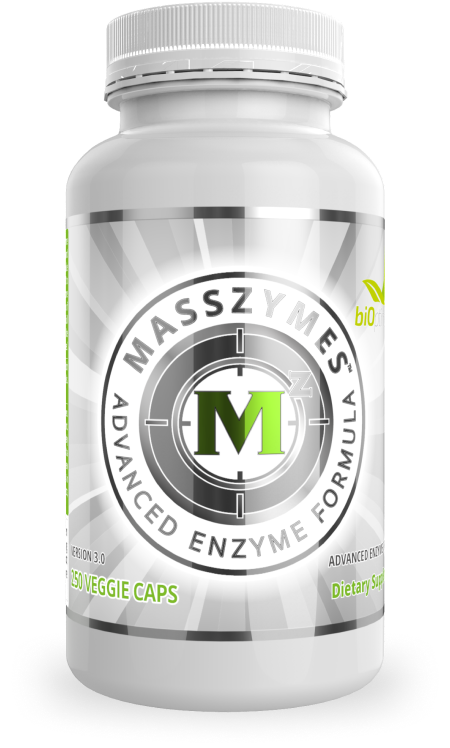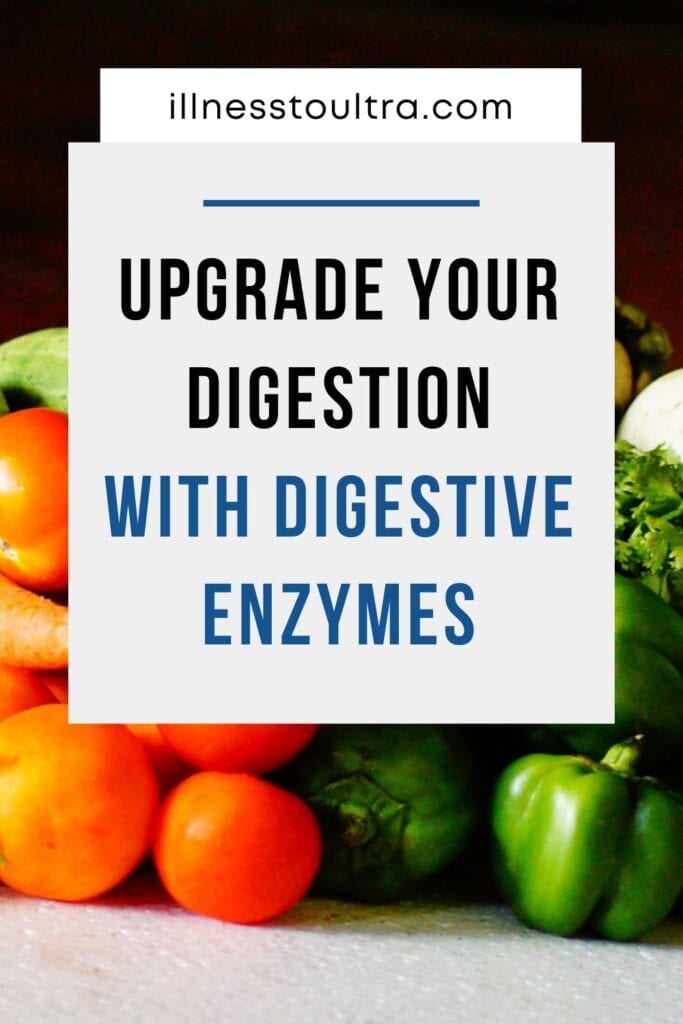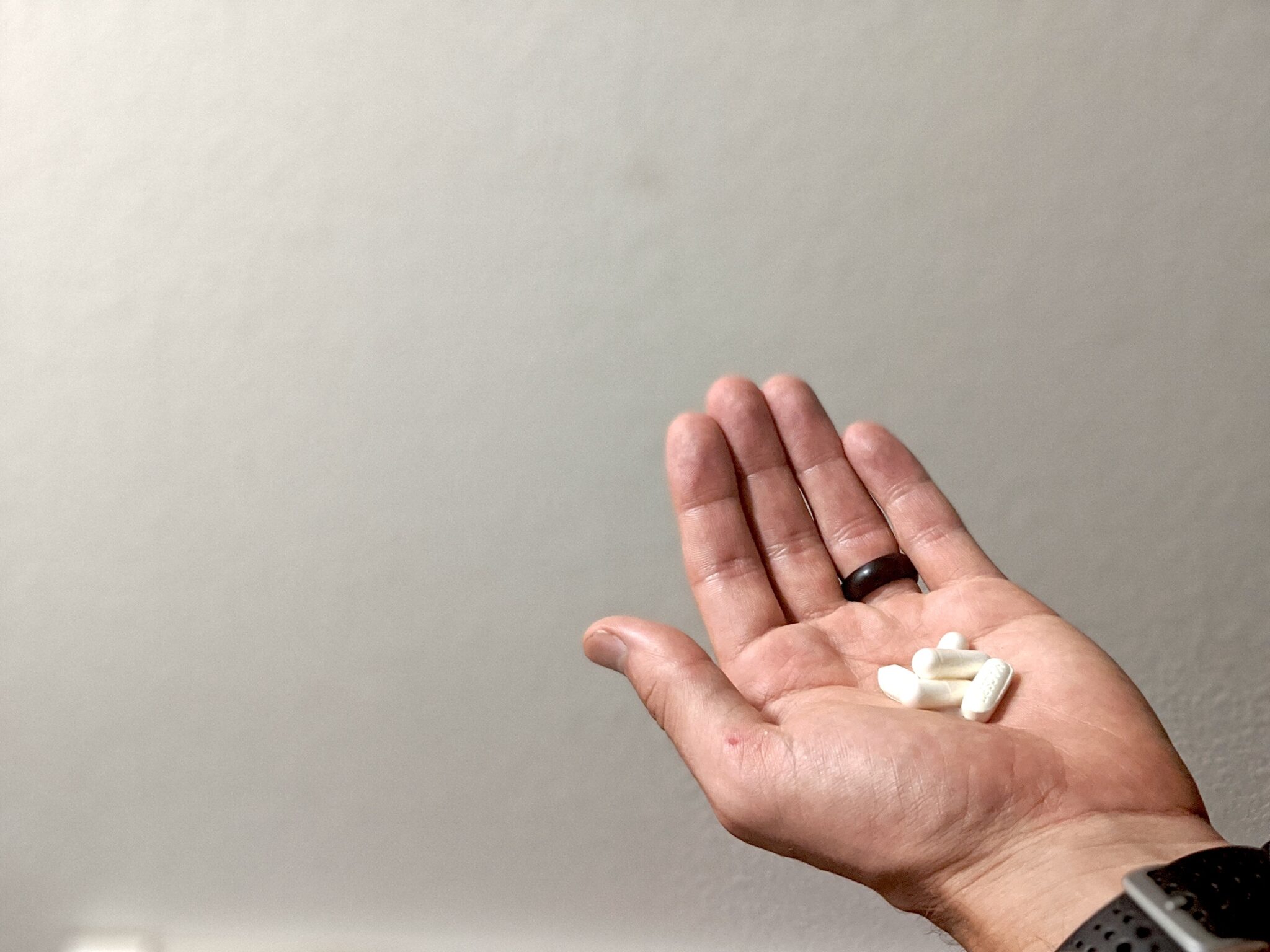But are we really lacking digestive enzymes? We’ve been digesting our food for years! Why would we suddenly see the rise in digestive issues and malabsorption when we’ve had no previous indication? This post will dive into enzymes (not just the digestive ones!) and why we possibly see more digestive issues in the modern world.
Click here find out how you could fix your digestion in 90-days, just like I did.
* Please note. If you click through the links on this page, I will be earning some affiliate money. If you do buy through those links, I can’t thank you enough. You’re the reason why this blog is alive! Plus you save money using the links too! We both win. ?
By no means is the following a prescription, and by no means am I a doctor. When making any changes in your life and using new products, ensure you discuss them with your doctor.
Let’s jump right to it. What are enzymes?
Most of us will think of enzymes as an aid to digestion. Did you know they actually do so much more than this?
Technically an enzyme provides a catalyst to chemical reactions in your body. That means they are vital to healing from illness, producing energy, and helping hormone-building mechanisms. But here, we’re going to focus on digestion.
Digestive Enzymes
It’s true, enzymes are still super necessary for digestion. That’s why your body naturally attempts to create all the enzymes you require to digest food adequately.
The problem is, when you’re chronically ill, overeating, or on a heavy workout regime, your body’s enzyme supply can fall short. And when this happens, the food that entered your digestive system fails to get broken down.
If you’ve already read my post, “But really, What is an Autoimmune Disease?“, that last sentence may have made a light bulb go off in your head. When food fails to break down in your digestive system, and when gut inflammation leaves you with a leaky gut, undigested proteins can leak into your bloodstream and push your immune system into overdrive. We don’t want that.
Now, if you’re fully digesting your food, it’s less likely that undigested food will make its way into your bloodstream, lessening the chance of chronic inflammation.
What enzymes should I look for?
You’ll most likely see a mixture of the following enzymes in a digestive supplement. Each has its own particular job.
- Alpha-Galactosidase
- Amylase
- Cellulase
- Glucoamylase
- Invertase
- Lactase
- Lipase
- Protease
- Xylanase
- Peptidase
- Pectinase
- Hemicellulase
- Phytase
For a full breakdown of each enzyme, I’d suggest reading Ben Greenfield’s article on Digestive Enzymes.
Let’s dive into some of these bad boys.
Amylase
Amylase is an enzyme used to break down carbohydrates. Amazingly, we start producing and releasing Amylase in our mouths as soon as we start chewing. That’s one reason why we’re told to chew our food well!
Further on in the digestive system, your pancreas produces more Amylase to help break down carbs even more.
If we’re not producing enough Amylase, we’ll start seeing issues like diarrhea. The lack of Amylase can wreak havoc on your microbiome. Allowing sugars to pass through and into your intestines, permitting sugar-feeding harmful bacteria to reproduce. This is why most people probably shouldn’t overload their carbohydrate consumption.
Lipase
Lipase is responsible for helping break down fats into more usable fatty acids. Lipase is produced by the pancreas. Any common issues with the production of this enzyme will be indicated in your stool.
If you have stools that float, are greasy, or seem to have an oil slick around them. You’ve probably got an issue with digesting fats, or your fat intake is higher than your digestive system can handle.
With the rise of the ketogenic diet, we’re seeing more fat malabsorption issues, possibly due to the lack of Lipase. Further down the chain, there are even genetic variants that may predetermine how well your body would perform on a ketogenic diet. As with any fad diet, don’t jump entirely into it until you know that your body will function optimally on it.
Protease
This enzyme is likely one of the most interesting. Protease enzymes are catalysts in breaking down proteins. As with all of the enzymes I’ve discussed, there is a vast family of protease enzymes that work well in different environments and on different proteins.
As explained previously, if you’re not breaking down protein molecules into amino acids AND lacking a sufficient amount of Protease enzymes, there’s a chance that these undigested proteins are making their way into your bloodstream. Inflammation and Autoimmune issues can occur from this happening.
We’ve found out what enzymes are and what jobs they have to do, but why would we lack in enzymes if our body produces them?
It’s commonly known that as we age, our digestion goes downhill. Cramps, gas, and bloating are the most common complaints and can often be attributed to a lack of enzymes.
The body can produce enzymes when required, but the process seems to fail with age and stress.
The following factors affect enzyme production:
- Chronic Illness
- Overeating
- Making poor food choices
- Chronically working out
- Stress
That’s just a small list of factors that can affect the production of enzymes, and it’s most likely that each of us can tick off at least one of them.
Enzymes we consume
It’s not all about the enzymes that we produce. We can also consume enzymes.
We would have been eating fruits and vegetables pulled straight from the ground without cooking them in the past. We find our food pre-packed, sprayed with pesticides, and exposed to temperatures above 105 Fahrenheit (41 degrees Celsius). In the modern world, the food you buy from a grocery store will likely have no enzymes.
The second source of enzymes we used to consume in the past would have come from animals. The raw organs of an animal or raw-unpasteurized milk would have carried a whole host of enzymes. It’s interesting to think that when you consume an animal from head to toe, you would also be consuming the enzymes that will help you digest this food.
Factors that affect consumed enzymes:
- Cooking food above 105 Fahrenheit (41degrees Celsius)
- Usage of Pesticides and Herbicides
- Not consuming the whole animal but only the muscle meat
To increase our body’s enzyme supply, we need to reduce our stress levels. I understand that’s hard to do in the modern world, but indulge me for a second.
For our bodies to perform at their best, we need to stress and recover at optimal rates. If you start overstressing the body and never give it time to recover, your body will begin to fail. That failure may occur in the digestive process. Instead, if we focus on stress AND recovery, we can build our bodies piece by piece and support the enzyme production process.
Another way to increase your enzyme supply includes consuming raw foods, particularly organic papayas, mangoes, pineapples, apples, avocados, carrots, grapefruit, spinach, and tomatoes. These are all great sources of natural enzymes – as long as you are buying organic. Remember, pesticides wipe out any available enzymes!
You can even take your raw vegetables one step further and grow your own sprouts. That’s not Brussel sprouts either. Sprouts are the first growth from seeds, nuts, legumes, which are extremely rich in enzymes, among other nutrients. To find out more about sprouts and how to grow them, head over to “Sprouts, The running recovery food you’ve been missing.”
Enzyme Supplements
Just like any other natural compound in the health world, the supplement world has jumped on enzymes. These supplements can be taken before eating to help with digestion.
You’ll find a wide range of enzymes out there, but here are a few things to look out for.
Only buy enzymes that quote the amounts in units of activity (what they can actually achieve) and not by weight (grams, mg, etc.). The weight of an enzyme has no meaning because it doesn’t help us understand how effective the enzyme will be.
Here are the figures quality enzyme products will be referenced in:
Protease – HUT (Hemoglobin Unit Tyrosine base)
Amylase – DU (Alpha-amylase Dextrinizing units)
Lipase – FIP, LU, FCCLU
Cellulase – CU (Cellulase unit)
Invertase – IAU (Invertase Activity unit)
Lactase – LacU (Lactase unit)
Maltase – DP (degrees Diastatic power)
You also want to look for a product that covers the broadest range of enzymes possible. By doing so, you allow your body to reduce the need to produce as many enzymes and free up your body’s resources and energy to focus elsewhere.
If you consume protein drinks, feel free to open up an enzyme capsule and dump it into the protein shake prior to drinking it. The protein will essentially be pre-digested before you even throw it down your throat. This can be especially helpful when using plant protein sources or whey protein, as neither is highly absorbable.
BiOptimizers MassZymes
The one digestive enzyme supplement that I trust. It covers all enzyme bases, with much higher unit counts than others on the market.
Click below to get up to 38% off.

Now that you know the impact that enzymes can have, you should ask yourself if it’s an area you could focus on. Digestion is the top of the list when it comes to healing. If your own digestion is suboptimal, it doesn’t matter how many supplements you take or how many kale smoothies you’re drinking, you’re not going to see huge benefits.
If you’re seeing any digestive issues, now is the time to fix them, not tomorrow. Because tackling chronic inflammation is no joke.
Go and talk to a functional medicine doctor or nutritionist about your diet and the possible use of enzymes to upgrade your healing. It’ll be the best decision you’ll make today.
But my digestion is fine?
Awesome! You’re on the right track. Now’s the time to optimize.
Even if your digestion seems to be optimal, you can upgrade your absorption rate of all macronutrients. We can even get to a point where plant-based proteins can be as highly absorbed as animal-based products. That fact could be the key to a healthy life and planet, without any compromise.
Another possibility is by increasing the enzymes you consume, you can reduce the amount of food you require. Meaning that you put less stress on the digestive system allowing you to funnel that energy elsewhere.
Enzyme optimization is for everyone, not just the sick.
BiOptimizers MassZymes
The one digestive enzyme supplement that I trust. It covers all enzyme bases, with much higher unit counts than others on the market.
Click below to get up to 38% off.


